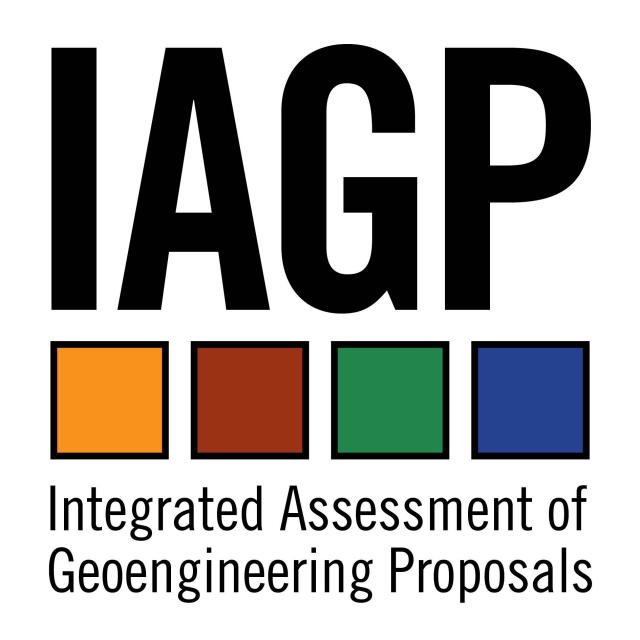You are here
"Messing with nature? Geoengineering and green thought" - Adam Corner in the Guardian
Further to the IAGP paper published earlier this month, Messing with nature? Exploring public perceptions of geoengineering in the UK, Adam Corner looks at the issues in his latest Guardian article, Messing with nature? Geoengineering and green thought. See original news item.
Slowdown in global surface temperature rise
This week the Science Media Centre, London, convened a press briefing to look at why global surface temperature averages have not risen in the last 10-15 years. An accompanying briefing note was published.
In front of a team of journalists five senior climate scientists addressed questions such as: Have climate models failed to predict a fundamental shift in the warming trend? Is this an important change that climate science must account for, or just a short-term irrelevance? What are the other indicators of a warming world showing us?
Media coverage from the event: The BBC; The Independent; The Telegraph; The mail online
Messing with nature? Exploring public perceptions of geoengineering in the UK
New open access, IAGP article published in Global Environmental Change
Messing with nature? Exploring public perceptions of geoengineering in the UK
Authors: Adam Corner, Karen Parkhill, Nick Pidgeon, Naomi E. Vaughan
This paper provides "the first in-depth examination of public views about how geoengineering technologies relate to nature, exploring the reasons why 'messing with nature' is such a powerful narrative in public perceptions of geoengineering..."
Led by IAGP teams at Cardiff and UEA four 'deliberative workshops' were convened in UK cities, Birmingham, Cardiff, Glasgow and Norwich at which members of the public discussed geoengineering and its social and ethical implications. The paper reflects on the views put forward and on the implications for how society relates to nature.
Earth cooling proposals are no silver bullet....
Deployment timescales for geoengineering technologies are “optimistic”, and larger trials are inevitable if governments are serious about exploring their potential says IAGP Principal Investigator, Piers Forster in a recent RTCC article.
Adam Corner - A New Conversation with Conservatives About Climate Change
IAGP Research Fellow, Adam Corner, presents at this year's AGU Chapman Conference in Granby, Colorado, USA.
Adam's talk, "A New Conversation with Conservatives About Climate Change: Values Frames & Narratives" will be streamed live from the conference website on Weds 12 June, 1:00 pm-1:20 pm (8.00pm-8.20pm BST)
AGU Chapman Conference: Communication Climate Science: A historic look to the future
Sign up to join Adam's live session.
Energy budget constraints on climate response
New study in Nature Geoscience
A new analysis, looking at temperature rise in the most recent decades, has shown that following rapid heating in the late 20th century the Earth warmed only slowly in the last decade, partly as a result of natural cycles in the climate system. The study, resulting from an international collaboration of climate scientists, suggests that the Earth will warm more slowly over the current century than previously thought, so allowing a little more time to cut emissions and prevent dangerous climate change.
Deliberation and Responsible Innovation - A Geoengineering Case Study
New IAGP Book Chapter: Deliberation and Responsible Innovation: A Geoengineering Case Study. Authors: Karen Parkhill, Nick Pidgeon, Adam Corner, Naomi Vaughan.
Published in, Richard Owen, John Bessant, Maggie Heintz (eds), Responsible Innovation: Managing the Responsible Emergence of Science and Innovation in Society.
Innovation is at the centre of current economic policy in most nations. Taking individual case studies this book scrutinizes various aspects of responsible innovation and asks "How do we ensure the responsible emergence of innovation in democratic society?"
Modeled rapid adjustments in diurnal temperature range response to CO2 and solar forcings
New open access IAGP paper in Journal of Geophysical Research: Atmospheres
Modeled rapid adjustments in diurnal temperature range response to CO2 and solar forcings
Climate models from the National Centre of Atmospheric Research were used to determine if rapid adjustments to surface heat fluxes contribute to a changes in diurnal temperature range (DTR) under 2 x CO2 and -2% solar forcings.
Deliberating stratospheric aerosols for climate geoengineering and the SPICE project - IAGP researchers report in Nature Climate Change
Deliberating stratospheric aerosols for climate geoengineering and the SPICE project
Published in Nature Climate Change this paper reports on the first public engagement study to explore the ethics and acceptability of stratospheric aerosol technology and a proposed field trial (the Stratospheric Particle Injection for Climate Engineering (SPICE) ‘pipe and balloon’ test bed) of components for an aerosol deployment mechanism.
Asymmetric forcing from stratospheric aerosols impacts Sahelian rainfall
Asymmetric forcing from stratospheric aerosols impacts Sahelian rainfall
IAGP Investigator Jim Haywood based at the Met Office publishes his latest research in Nature Climate Change
Using state of the art climate models this latest study shows how the Sahelian droughts of the 1970s-1990s may have been caused, to a much greater degree than previously understood, by significant volcanic eruptions in the Northern Hemisphere. The Sahel is a belt of land that crosses the African continent along the southern border of the Sahara Desert and is described as one of the poorest and most vulnerable regions of the world. Here rainfall is generally low and unpredictable. The detection of this link between volcanic activity and drought could be used by policy-makers and aid organisations to potentially predict, and so limit, the devastating humanitarian impact of prolonged drought in this region.



